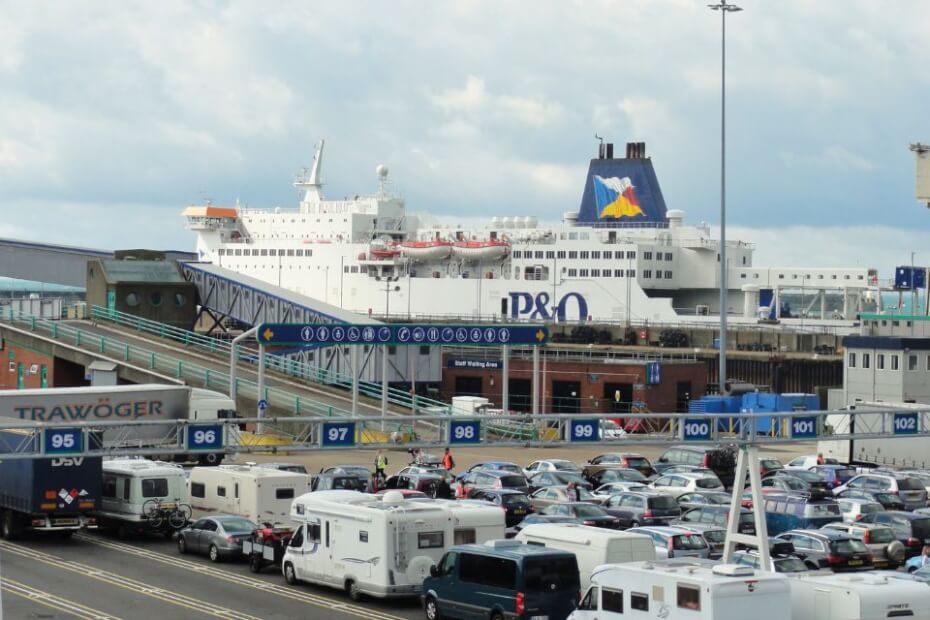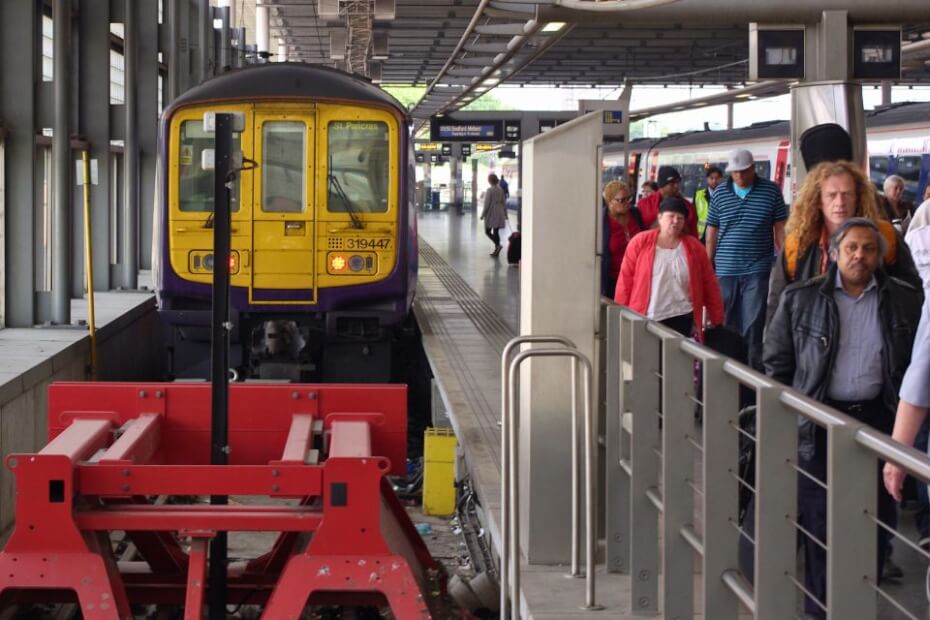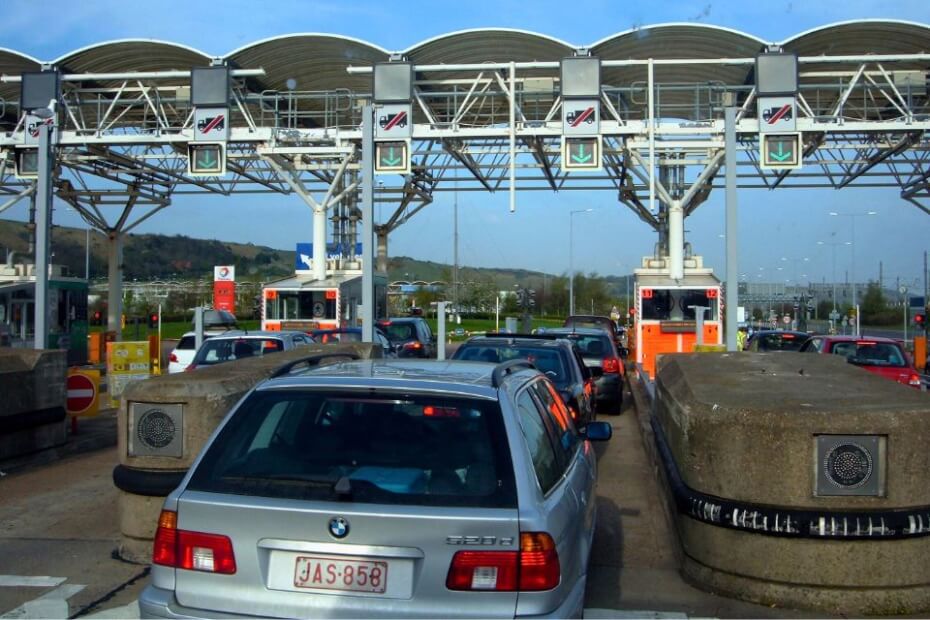
The United Kingdom (UK) is taking proactive steps to ensure smooth travel for its citizens as the European Union (EU) launches its new digital border system.
On 27 August, it announced a substantial £10.5 million funding package to upgrade key travel hubs and ready them for the EU’s Entry/Exit System (EES).
This funding package will benefit the Port of Dover, Eurostar’s St. Pancras terminal in London, and the Channel Tunnel (Eurotunnel) in Folkestone.
The announcement comes after the EU confirmed that its new digital border system will launch in November.
It also comes after the Labor Government declared that EES preparations are insufficient to effectively avoid travel disruption and chaos.
The EES will require non-EU travelers to register personal, passport, and biometric data, such as fingerprints and facial scans.
This includes British citizens traveling to continental Europe for holidays or visiting family and friends.
Addressing insufficient preparations for the new digital border system
The EES is expected to enhance security and streamline border checks for non-EU travelers at EU borders.
However, it will also introduce new challenges for busy border crossings that require extensive preparation.
The UK government has allocated £3.5 million to the Port of Dover, London’s St. Pancras terminal, and the Channel Tunnel.
The funds will be used to upgrade infrastructure and technology at these crossings, addressing challenges in preparations for the EES.
At the Port of Dover, the money will help accelerate the Granville Dock Project. This project will expand the port’s capacity to process travelers more efficiently.
The project involves converting an existing marina into a state-of-the-art processing site, minimizing potential delays due to the EES.
Eurostar and Eurotunnel will use their share of the funding to install additional biometric kiosks and conduct rigorous EES tests.
The two rail links connecting the UK and mainland Europe will also use the money to train and prepare their staff for the changes.
Another critical area of focus for the funding is ensuring that all systems are fully integrated and operational.
This involves thoroughly testing the new technology to ensure smooth integration with existing infrastructure.
Doing this will help identify and resolve any potential issues well in advance.
These upgrades ensure these critical UK-EU gateways can handle the additional demands the EES will place on them.
They are also crucial for ensuring that the EU’s new digital border system does not significantly delay travelers.
Reactions to new funding support for EES preparations

Seema Malhotra, the UK’s Minister for Migration and Citizenship, stressed the government’s commitment to ensuring a smooth transition to the EES.
“We are working hard with the European Commission, Member States, and ports to ensure we are well-prepared and minimize any disruption for Brits traveling into Europe,” she said.
Lilian Greenwood, the UK’s Future of Roads Minister, emphasized the importance of these upgrades.
She underlined, “Nobody wants to see excessive queues at our ports.”
The Port of Dover’s chief operations officer Emma Ward said the funding is a “welcome step towards the significant investments.”
“We are doing all that we can to be ready with the facilities that will be used by French border officials operating the new system,” she added.
The port is working towards allowing French border officers to operate on the western docks, where coaches will line up for EES checks.
“With support from the government, we have enhanced our facilities and upgraded our technology to meet the new requirements,” said Simon Lejeune, Eurostar Chief Safety and Stations Officer.
He added that Eurostar will be fully prepared and compliant when the EU’s new digital border systems launch in November.
Getlink has always prioritized customer satisfaction as it started investing in EES preparations two years ago.
The company recently completed a dedicated new covered drive-through bay, or EES Zone, in its terminals.
This ensures that people “travel through the Channel Tunnel just as easily as they do today when the EES goes live.”
Importance of more support for UK-EU border crossings

The anticipated increase in the complexity and length of border checks drives the need for additional support to prepare for the EES.
The Port of Dover, St. Pancras, and the Channe Tunnel are UK-EU borders with juxtaposed controls.
This means that EU border officials perform immigration checks on travelers while still on UK soil.
These border crossings encountered space and infrastructure limitations to accommodate EES checks.
The EES will introduce a new layer of complexity, requiring travelers to register their biometric data at the border.
This process is expected to add more processing times for each traveler, particularly in the early stages of implementation.
When non-EU travelers visit the Schengen Zone for the first time, they must register biometric details before a border officer.
EU laws currently prevent biometric registration ahead of time and away from the borders.
The early stages of EES implementation could also lead to delays as travelers and staff adjust to the new system.
These new EU digital border system requirements could lead to significant delays at busy ports that are not fully prepared to address them.
The Port of Dover handles a substantial volume of passenger and freight traffic between the UK and the EU.
Delays at this port could have a ripple effect, disrupting individual travelers and the broader supply chain.
Similarly, Eurostar and Eurotunnel are vital links between the UK and mainland Europe.
They must be fully prepared for the EES, as many commuters, tourists, and freight operators use them.
Any delays or disruptions in these services could have significant economic and social impacts.

